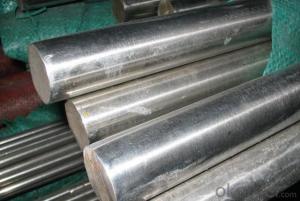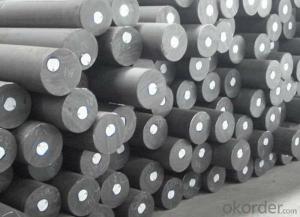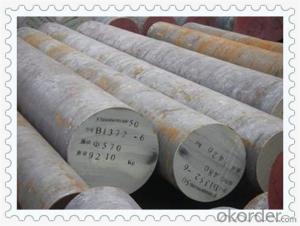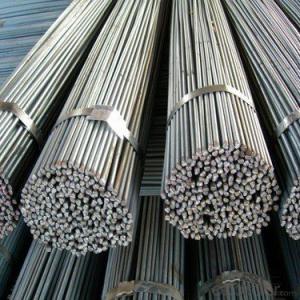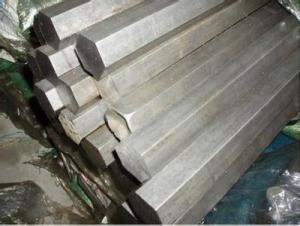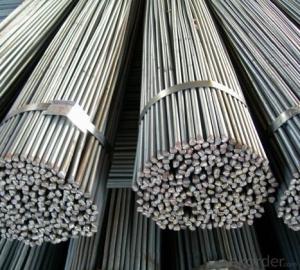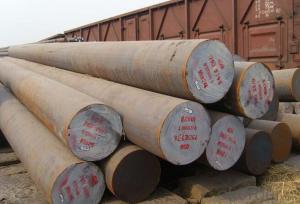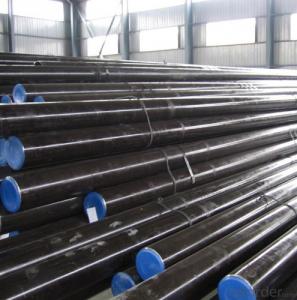Mould Steel Bar H13 Hot Forged Finished
- Loading Port:
- Tianjin
- Payment Terms:
- TT OR LC
- Min Order Qty:
- 25 m.t.
- Supply Capability:
- 50000 m.t./month
OKorder Service Pledge
OKorder Financial Service
You Might Also Like
Specification
Mould Steel Bar H13 Hot Forged Finished
Product Description:
1.The steel is widely used to manufacture hot extrusion dies and mandrels, forging die forging hammer die forging presses, forging machines, mold inserts and alloy die-casting mold.
2.the steel has high hardenability and thermal cracking capacity,good wear resistance,with good heat resistance, in higher temperatures has good strength and hardness, high wear resistance
3.HOT WORK TOOL STEEL ROUND BAR
H13/DIN1.2344 hot work mould steel feature:
Comparable steel:H13(USA,ASTM);DHA1(Datong,Japan);4Cr5MoSiV1(China);1.2344(Germany DIN);SKD61(Japan,JIS)
Chemical Composition:
C | Si | Mn | Mo | V | Cr | P | S | |
0.32~0.42 | 0.80-1.20 | 0.20-0.50 | 1.10-1.75 | 0.80-1.20 | 4.75-5.50 | ≤0.030 | ≤0.030 |
Features of H13 Steel:
1, Hot work tool steel
2, Very good red-hardness with toughnes
3, Tools may be water-cooled in service
4, May be cold-hobbed in the annealed condition
Application:
1, Casting dies for aluminium, magnesium and zinc
2, Extrusion dies and adaptor ring
3, Hot stamping and press forge dies
4, Shear blades for hot work and hot swaging dies
Product Show:
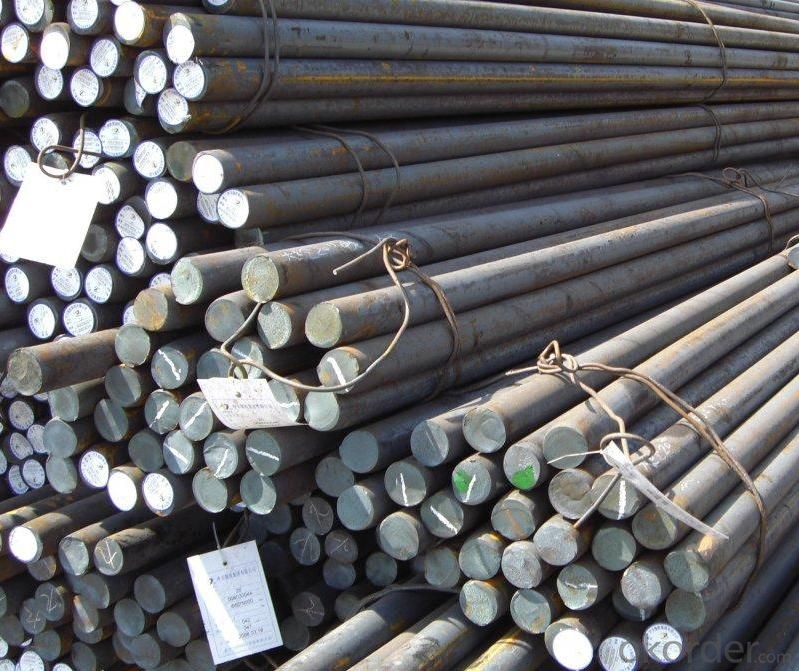
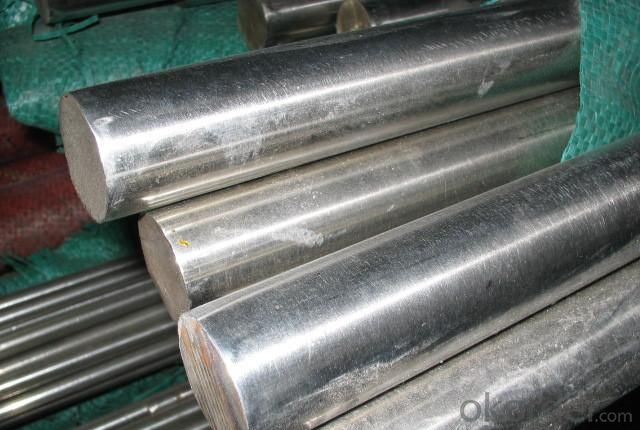
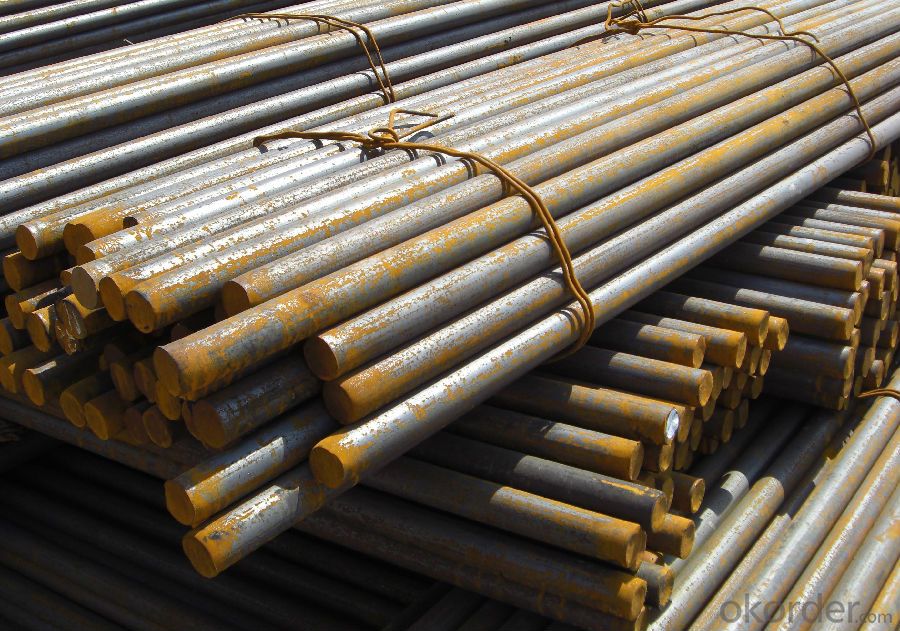
- Q: How is silicon steel used in electrical transformers?
- Silicon steel is used in electrical transformers as it possesses magnetic properties that allow it to efficiently conduct and transform electrical energy. The high silicon content in silicon steel helps reduce energy losses by minimizing the eddy current and hysteresis losses that occur during the transformer's operation. This results in improved efficiency and reduced heat generation, making silicon steel a crucial component in the construction of electrical transformers.
- Q: What are the different mechanical properties of special steel?
- Special steels have a variety of mechanical properties that make them unique and suitable for specific applications. Some of the key mechanical properties of special steel include high strength, excellent toughness, good wear resistance, and superior corrosion resistance. High strength is one of the most important properties of special steel. It allows the material to withstand heavy loads and stress without deformation or failure. This property makes special steel suitable for applications where structural integrity and durability are critical, such as in the construction of buildings, bridges, and machinery. Another significant mechanical property of special steel is its toughness. Toughness refers to the ability of a material to absorb energy and resist fracture under impact or sudden loads. Special steels with high toughness are essential for applications that involve dynamic and high-impact forces, such as in the manufacturing of tools, gears, and machinery components. Wear resistance is another important mechanical property of special steel. It refers to the ability of a material to resist damage and deterioration due to friction, abrasion, or erosion. Special steel with good wear resistance is commonly used in applications where it will be subjected to harsh conditions or repetitive mechanical actions, such as in the production of cutting tools, dies, and molds. Superior corrosion resistance is a valuable mechanical property of special steel, especially in environments where exposure to moisture, chemicals, or extreme temperatures is likely. Special steels with high corrosion resistance can withstand the deteriorating effects of oxidation, rust, and chemical reactions, making them suitable for applications in industries such as marine, chemical, and oil and gas. In summary, special steels possess a range of mechanical properties that set them apart from conventional steels. High strength, excellent toughness, good wear resistance, and superior corrosion resistance are some of the key mechanical properties that make special steel a preferred choice for various industrial applications.
- Q: What are the different heat-resistant grades of special steel?
- There are several heat-resistant grades of special steel, including stainless steels like 304H, 310H, and 347H, as well as nickel alloys like Inconel 600, Inconel 625, and Hastelloy C276. These grades are specifically designed to withstand high temperatures and maintain their strength and corrosion resistance even in extreme heat environments.
- Q: How does special steel perform in extreme pressure conditions?
- Special steel offers exceptional performance in conditions of extreme pressure, thanks to its unique composition and manufacturing process. It possesses high strength, durability, and resistance to deformation, which make it ideal for applications involving extreme pressures. Under extreme pressure, special steel maintains its structural integrity without significant deformations. This is possible due to its impressive tensile strength, allowing it to withstand tremendous forces without breaking or bending. Furthermore, the hardness and toughness of special steel enable it to resist wear and damage caused by intense pressure. In addition, special steel exhibits excellent heat resistance, which is vital in extreme pressure situations where elevated temperatures are common. Its ability to withstand high temperatures without compromising its mechanical properties ensures its dependability and effectiveness even in the most demanding circumstances. Moreover, the corrosion resistance properties of special steel are outstanding, making it suitable for use in extreme pressure environments where exposure to corrosive substances is a concern. Its resistance to oxidation and other chemical reactions prevents deterioration or weakening, guaranteeing long-term performance and reliability. Overall, special steel excels in extreme pressure conditions due to its high strength, durability, resistance to deformation, heat resistance, and corrosion resistance. These characteristics make it a reliable and efficient choice for various industries and applications that operate in extreme pressure environments, including oil and gas exploration, aerospace, automotive, and heavy machinery manufacturing.
- Q: What are the different methods of surface polishing for special steel?
- Some of the different methods of surface polishing for special steel include mechanical polishing, chemical polishing, electropolishing, and abrasive blasting. Mechanical polishing involves using abrasive materials like sandpaper or polishing wheels to remove imperfections and create a smoother surface. Chemical polishing uses chemical solutions to dissolve a thin layer of the steel's surface, resulting in a polished finish. Electropolishing is an electrochemical process that removes surface material through the application of an electric current, resulting in a smooth and shiny surface. Abrasive blasting, also known as sandblasting, involves propelling abrasive particles at high speeds to remove rust, scale, or other surface contaminants, leaving a polished surface.
- Q: Can special steel be used in the automotive racing industry?
- Yes, special steel can be used in the automotive racing industry. Special steel alloys, like high-strength steels or heat-resistant steels, are commonly utilized to enhance performance, durability, and safety in racing vehicles. These specialized steels offer superior strength-to-weight ratios, improved mechanical properties, and resistance to extreme temperatures, making them ideal for various automotive racing applications such as chassis, suspension components, engine parts, and exhaust systems.
- Q: What are the different surface treatments applied to special steel?
- There are several different surface treatments that can be applied to special steel to enhance its properties and improve its performance. Some of the commonly used surface treatments include: 1. Heat treatment: This is a process that involves heating the steel to a specific temperature and then cooling it at a controlled rate. Heat treatment can be used to improve the hardness, strength, and toughness of the steel, as well as to enhance its resistance to wear and corrosion. 2. Coating: Coating the surface of special steel with a protective layer is another common surface treatment. This can be done using various methods such as electroplating, hot-dip galvanizing, or powder coating. Coatings can provide additional resistance to corrosion, improve the appearance of the steel, and increase its lifespan. 3. Nitriding: Nitriding is a process that involves diffusing nitrogen into the surface of the steel, typically at high temperatures. This forms a hard surface layer that improves the wear resistance and fatigue strength of the steel, while maintaining the core toughness. 4. Shot peening: Shot peening is a mechanical surface treatment that involves bombarding the steel surface with small spherical particles, typically made of steel or ceramic. This process induces compressive stresses in the surface layer, which improves the fatigue strength and resistance to stress corrosion cracking. 5. Passivation: Passivation is a chemical treatment that is used to remove impurities and contaminants from the surface of the steel, typically by immersing it in an acid solution. This process helps to restore the natural corrosion resistance of stainless steel by forming a protective oxide layer on the surface. 6. Electro-polishing: Electro-polishing is an electrochemical process that removes a thin layer of material from the surface of the steel. This treatment can improve the surface finish, remove micro-roughness, and enhance the corrosion resistance of the steel. These are just a few examples of the various surface treatments that can be applied to special steel. The choice of treatment depends on the specific requirements of the application and the desired properties of the steel.
- Q: How does special steel contribute to the manufacturing of gears?
- Due to its unique properties and characteristics, special steel is essential in the production of gears. Gears, which are mechanical devices that facilitate the transmission of power and motion between rotating shafts, require the ability to withstand high loads, operate at high speeds, and maintain precise dimensions for smooth and efficient performance. Special steel, with its enhanced mechanical properties and superior quality, provides the necessary strength, durability, and wear resistance needed for gear manufacturing. A key aspect of special steel is its high strength and hardness. Gears often endure heavy loads and experience significant stress during operation. Special steel, such as alloy steel or tool steel, possesses exceptional strength, enabling gears to handle these loads without deformation or failure. Additionally, the hardness of special steel ensures that gears can withstand abrasive wear and prevent damage caused by external factors like friction and contact with other components. Special steel also contributes to gear manufacturing by offering excellent fatigue resistance. Gears are exposed to repetitive cyclic loading, which, if not properly designed and manufactured, can result in fatigue failure over time. Special steel, with its unique microstructure and composition, enhances the fatigue life of gears by minimizing crack propagation and reducing the risk of failure, ensuring long-term reliability and performance. Furthermore, special steel provides excellent machinability and dimensional stability, two critical factors in gear manufacturing. The machinability of special steel allows for precise shaping and cutting of gear teeth, ensuring accurate dimensions and smooth gear operation. The dimensional stability of special steel helps to maintain the gear's shape and integrity under various temperature and environmental conditions, guaranteeing consistent performance throughout its lifespan. In conclusion, special steel plays a significant role in gear manufacturing by supplying the necessary strength, durability, wear resistance, fatigue resistance, machinability, and dimensional stability. Gears made from special steel can endure high loads, operate at high speeds, and maintain precise dimensions, ultimately contributing to the efficient functioning of various machinery and mechanical systems.
- Q: How is special steel used in the manufacturing of tools and dies?
- Special steel is widely used in the manufacturing of tools and dies due to its exceptional properties that make it suitable for these applications. Special steel, also known as tool steel, is specifically designed to have high hardness, wear resistance, toughness, and heat resistance. In the manufacturing of tools, such as drills, saws, hammers, and chisels, special steel is used to ensure durability and long tool life. The high hardness of special steel allows these tools to withstand the rigors of cutting, drilling, and shaping without easily dulling or deforming. Additionally, the wear resistance of special steel ensures that these tools can maintain their sharp cutting edges for an extended period, reducing the need for frequent sharpening or replacement. Moreover, in the production of dies used in various manufacturing processes, special steel plays a crucial role. Dies are used to shape materials into specific forms or sizes, such as in forging, stamping, or extrusion processes. The high toughness of special steel allows dies to withstand the high pressure and impact forces involved in these processes without cracking or fracturing. Additionally, the heat resistance of special steel ensures that dies can withstand the elevated temperatures generated during these operations without losing their shape or hardness. Special steel also offers excellent machinability, allowing it to be easily shaped and formed into complex tool and die designs. This property is significant in manufacturing, as it enables the production of intricate and precise tools and dies, leading to improved product quality and efficiency. Overall, special steel is an essential material in the manufacturing of tools and dies due to its exceptional hardness, wear resistance, toughness, heat resistance, and machinability. These properties ensure the durability, long tool life, and high performance of tools and dies, contributing to the overall efficiency and quality of various manufacturing processes.
- Q: How does special steel perform in high-temperature fatigue resistance?
- The excellent performance of special steel in high-temperature fatigue resistance is well-known. Unlike ordinary steel, special steel contains alloying elements like chromium, nickel, and molybdenum, which improve its mechanical properties and resistance to fatigue at elevated temperatures. When exposed to high temperatures, the microstructure of special steel undergoes significant changes that can result in the initiation and propagation of cracks. However, the presence of alloying elements in special steel plays a crucial role in stabilizing the microstructure, thereby preventing the formation and growth of cracks. This ensures that the material can withstand cyclic loading and maintain its structural integrity even in extreme temperature conditions. Furthermore, special steel possesses exceptional heat resistance, allowing it to retain its mechanical strength and hardness at high temperatures. This characteristic is vital in applications where components are subjected to repeated thermal cycles or continuous exposure to high temperatures, such as in gas turbines, power plants, and aerospace engines. Moreover, the composition and heat treatment of special steel also influence its high-temperature fatigue resistance. By precisely controlling the alloying elements and employing appropriate heat treatment processes, the fatigue life and resistance to thermal fatigue of the material can be further improved. To conclude, special steel demonstrates remarkable performance in high-temperature fatigue resistance due to its unique composition and microstructure. Its ability to endure cyclic loading, maintain mechanical properties, and resist crack formation in extreme temperature conditions make it a preferred choice for demanding applications across various industries.
Send your message to us
Mould Steel Bar H13 Hot Forged Finished
- Loading Port:
- Tianjin
- Payment Terms:
- TT OR LC
- Min Order Qty:
- 25 m.t.
- Supply Capability:
- 50000 m.t./month
OKorder Service Pledge
OKorder Financial Service
Similar products
Hot products
Hot Searches
Related keywords
